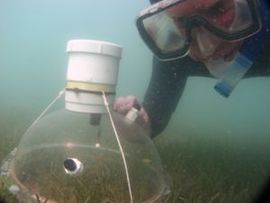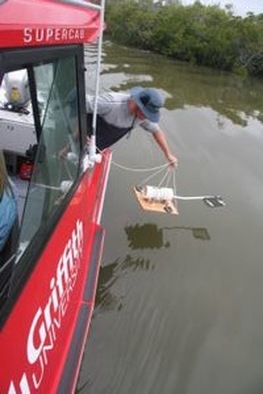Coastal Carbon
|
The world runs on carbon, fuelling human energy needs through hydrocarbons and driving food webs. We investigate two key aspects of carbon movement.
Videography by Bodhi Connolly & Jean Davis
Project 1: Blue carbon Many of the world’s coastlines are surrounded by a thin green strip of coastal wetlands (seagrass, saltmarsh and mangroves). These habitats sequester carbon rapidly, potentially locking it in marine sediments for hundreds to thousands of years. We investigate how sequestration varies from place to place, and how management of human activities can enhance the process. Project 2: Food webs and sustainable fishing Tracking carbon movement through the ecosystem using stable isotopes allows us to determine key energy pathways of coastal wetlands. We can then focus conservation efforts where they will be most effective, supporting sustainable fisheries and biodiversity objectives. Collaborators These projects are collaborative with students and many colleagues, including: Trisha Atwood (Utah State), Steven Bouillon (KU Leuven, Belgium), Carlos Duarte (KAUST, Saudi Arabia), Brad Eyre (SCU), Brian Fry (GU), Gary Kendrick (UWA), Joe Lee (Chinese U, Hong Kong), Cath Lovelock (UQ), Peter Macreadie (Deakin), Damien Maher (SCU), Joanne Oakes (SCU), Andrew Olds (USC), Mike Rasheed (JCU), Thomas Schlacher (USC), Paul York (JCU). This work benefits from financial support from multiple sources including the Australian Research Council, CSIRO Coastal Carbon cluster, and Queensland Dept of Fisheries. |
Key papers: |

